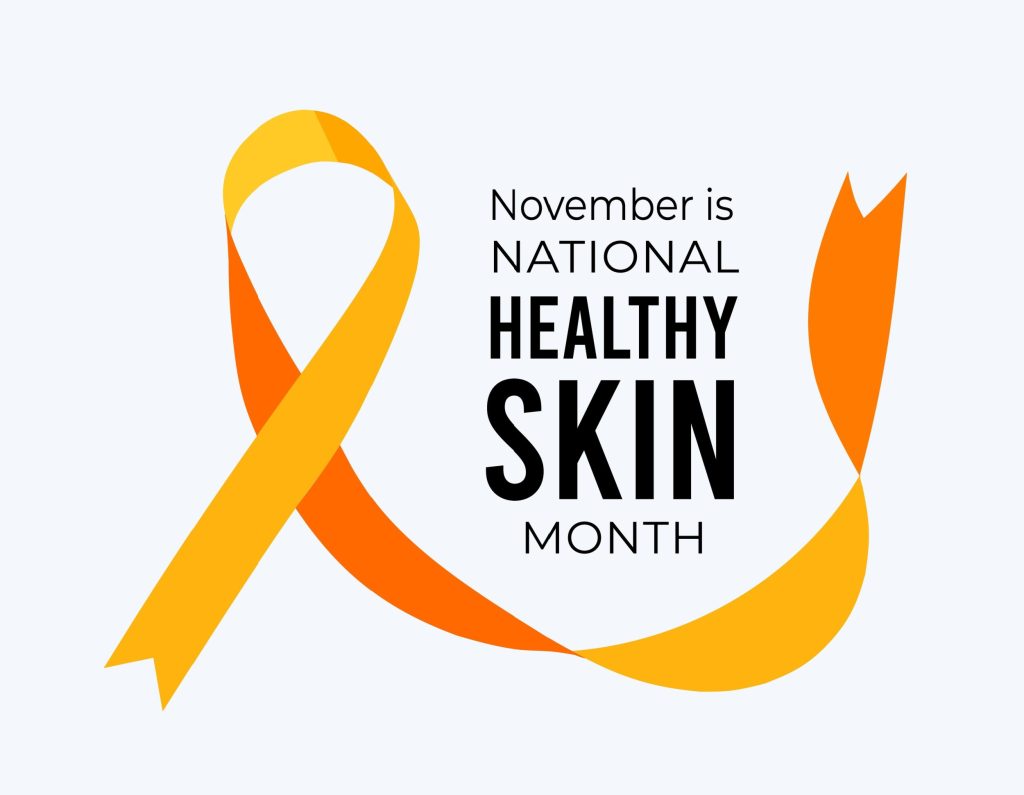
As the largest organ in your body, your skin serves multiple functions. It provides a waterproof barrier, helps regulate body temperature, and works as a protectant from infection and other elements such as pollutants, bacteria, and the sun’s UV rays. Your skin can also be a key indicator when something is wrong with your body’s well-being. Often when there is an issue within, your skin may undergo certain changes as part of its stress response.
If your body is trying to tell you something, you might experience one of the following.
Dry, Itchy Skin
If you have chronic dry, itchy skin that lasts more than six weeks, it may indicate an underlying illness like liver disease, asthma, lymphoma, or hepatitis. Dry, itchy skin can also be caused by eczema, psoriasis, dermatitis, or an allergic skin reaction. After receiving an accurate diagnosis, if your dry and itchy skin is coming from a skin condition, a dermatologist can often help mitigate the symptoms. A dermatologist can also point you in the right direction if he/she thinks your response is related to something internal.
Unusual Hair Growth
If you are a woman and notice sudden hair growth popping up in new areas like your chin, upper lip, chin, and cheeks, it may be a sign that you could have polycystic ovarian syndrome (PCOS). To diagnose PCOS, your doctor may recommend a pelvic exam, blood tests, and an ultrasound. Excessive hair growth can also be caused by hirsutism, a condition in women that causes extra hair growth from excess male hormones (androgens), primarily testosterone. Although hormonal imbalances are typically the cause of male-pattern facial hair in women, other causes may include adrenal gland disorders and from taking medications that can stimulate hair growth. Luckily, there are many treatment options for this condition and a quick trip to the dermatologist can help point you in the right direction.
Thinning Hair, Hair Loss & Dry Scalp
Both men and women may experience thinning hair and/or hair loss at some point due to underlying health conditions such as an overactive thyroid. Additionally, sudden hair loss can also come from a hormonal imbalance, genetics, stress, infection, illness, vitamin deficiency, or from taking certain medications. Once the underlying cause of hair loss is diagnosed and treated, hair generally begins to grow back within three months.
Many people may also suffer from an itchy, flaky scalp. This is usually due to seborrheic dermatitis, a common skin condition that causes scaly patches, red skin, and dandruff on the scalp. Fortunately, symptoms can be kept under control by following a regimen prescribed by your dermatologist.
Yellow and Red Bumps
Yellow bumps can come from an accumulation of cholesterol in the skin in people who have high cholesterol or triglyceride levels due to a genetic disorder. These bumps cause concern as they may be a precursor to heart disease and stroke.
Having red bumps can be an indication that you may have rosacea. Rosacea is a skin condition that causes your skin to become flush and produce small, pus-filled bumps that look like pimples. There’s no cure for rosacea, however, under the care of an experienced dermatologist, the right treatment can help to manage symptoms.
Hives
Hives are itchy, raised patches of skin where your body releases histamine. Allergic skin reactions are generally the main cause of hives; however, your skin may be triggered by them if you are under a lot of stress, or have an infection like strep throat, a urinary tract infection, or a virus. Hives generally go away on their own but may need to be treated by a physician if they do not resolve after a few days with over-the-counter remedies.
Hyperpigmentation & Dark Patches
Areas of darker skin, or hyperpigmentation, may be an indicator for both diabetes and Addison’s disease. Hyperpigmentation can also come from being overexposed to the sun’s UV rays. This is another reason why it’s extremely important to follow up with your dermatologist on an annual basis for a comprehensive exam. He/she can establish your skin’s history and track any changes to make sure you aren’t at risk for skin cancer or other concerns.
The above list is just a fraction of what you may notice if your skin is signaling something that needs attention. If you begin spotting these and other rapid changes in your skin, it’s important to make an appointment with your dermatologist. It may be as simple and treatable as having irritated skin from allergies or weather changes, but it could also be something more serious that needs more comprehensive medical intervention.
FLDSCC Can Help You with Your Skin Concerns
FLDSCC’s team of providers are experts in diagnosing and treating skin cancers; skin conditions and diseases such as eczema, rosacea, dry skin, rashes, and warts; and chronic skin diseases and infections, while simultaneously tackling aging skin, wound care, and a multitude of other skin, hair, and nail concerns.
Several FLDSCC providers are fellowship-trained in Mohs micrographic surgery, an effective state-of-the-art treatment for most types of skin cancers. Mohs surgery involves minimal discomfort and encourages the greatest preservation of healthy tissue, which means less risk of scarring and superior cosmetic results.
FLDSCC has many convenient locations throughout the state. For more information, visit www.fldscc.com, or call (855) FLD-SKIN.


